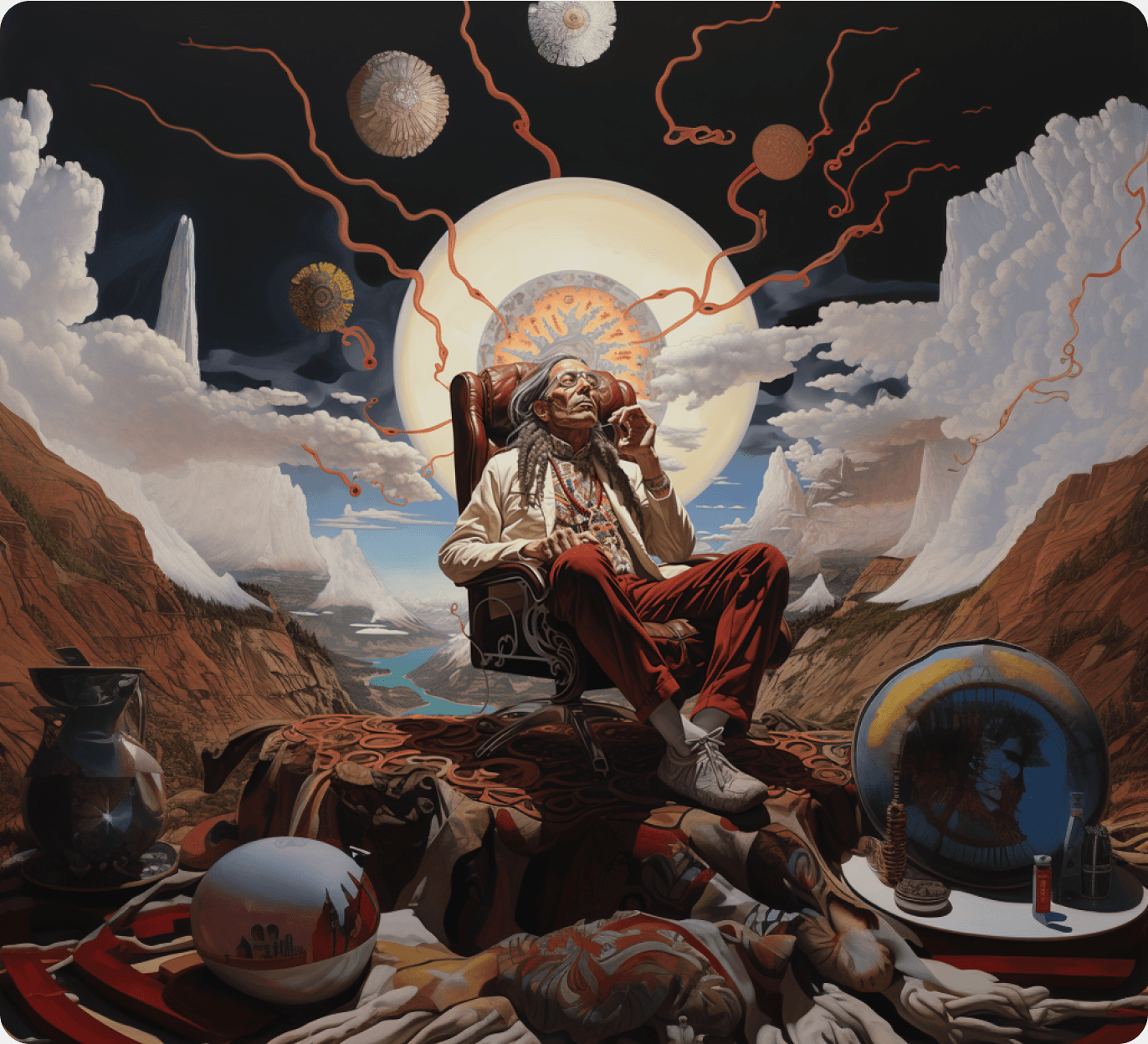
Then came the great
Sigmund Freudwith his ground-breaking perspective on dreams. Dr.Freud believed that dreams were expressions of unconscious desires and thoughts. Thus dreams were wrested from the ownership of mysterious unearthly beings and slowly started making their way into what would become neuroscience, psychopathology, and neurobiology. It is important to give credit to Dr.Freud for this major paradigm shift in thinking about dreams, however, we also should keep in mind that, borrowing Matthew Walker’s assessment, Freud was 50 percent right and 100 percent wrong.

Things started to shift around the 1950s and 1960s, when first recordings from electrodes placed on the scalp (an electroencephalogram, or EEG as people most commonly referred to) gave scientists a general sense of the type of brainwave activity underpinning the dreaming portion of the sleep. And it was only after the advent of fMRI machines in the early 2000s that scientists started to receive three-dimensional visualizations of brain activity during dreaming in real-time.
And in 2013,
a research team in Japan,led by Dr. Yukiyasu Kamitani at the Advanced Telecommunications Research Institute International in Kyoto, essentially cracked the code of an individual’s dream for the very first time. The scientists had turned the fMRI machine into a very expensive version of the beautiful handmade dream-catchers that some Native American cultures will hang above their beds in the hopes of ensnaring the dream - and they had succeeded.

If you dream of losing your teeth
In many cultures dreams still carry prophetic vibes, people want to know the future, and what you can do with the messages from your dreams. Depending on where in the world you grew up, you might have heard folk wisdoms like "If you dream about a fish, it means you will get pregnant" or "If you dream of losing your teeth", it means you will soon die. Dream is a powerful myth, and it will most likely keep that status as science in parallel will keep fighting for its own right to explain it. More research is definitely needed for science to gain the confidence to do that. Nevertheless, the path looks bright, at least from our perspective. Here at DreamApp we strongly believe in the power of dreams backed by the power of science.
That’s why we started DreamApp, which works as a robust dream lab, collecting data about dream patterns and initiating research to move scientific knowledge about the subject forward into the unknown. DreamApp is on a mission to identify mental health deviations early on by analyzing patterns in dream descriptions and user conversations. One of our core assets is the largest data set of dreams in the world. We have already captured and analyzed close to 3 million dreams, hundreds of thousands of user conversations, and thousands of
Generalized Anxiety Disorder-7 (GAD-7)questionnaires - all to get a deeper insight into the diagnostic potential of dreams. That is probably the only manifestation of prophetic qualities of dreams we deem acceptable for the twenty-first century.

Dream App
Free dream interpretations

(1,213)




